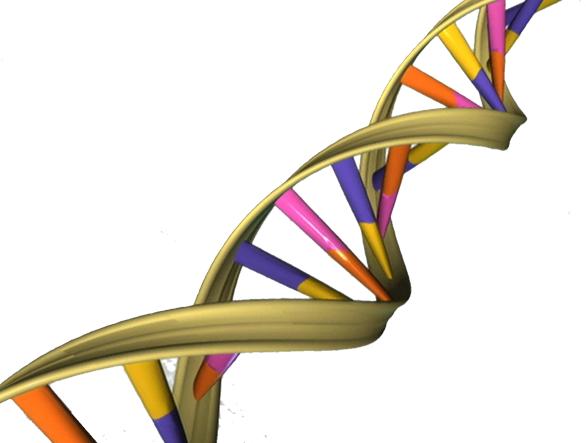Weight stigma is real. Overweight and obese people are the targets of bias at work, school, at the doctor's office, within personal relationships and in the media.
A recent study published in Nature Genetics, describes a genetic link to obesity in humans discovered by studying obese children in Pakistan. One of the reasons that the genetics were uncovered in this region is because of the frequency of consanguinous (within the family) relationships. The genes that were identified are recessive mutations and exhibit a trait when two copies of the mutation are present - something that is much more likely to occur when families interbreed.
Saeed et al. used genome sequencing to find mutations in one specific gene related to obesity, adenylate cyclase 3 (ADCY3). What is ADCY3?
ADCY3 is a key enzyme that plays a main role in cells. They convert adenosine triphosphate (ATP) to 3',5'- cyclic AMP (cAMP) and pyrophosphate. Although there are six adenylyl cyclases in the cell, adenylyl cyclase 3 is the best understood.
The cAMP produced by ADCY3 serves as a regulatory signal in the cell. It can do a number of different critical functions, including binding cAMP-binding proteins, transcription factors, enzymes or transporters.
cAMP regulates many important processes in the cell. So, when the enzyme that is responsible for making it is mutated, and the amount of cAMP is altered, the cell runs into a problem. cAMP has been understood for some time, and the Nobel Prize of 1971 was awarded to Earl Sutherland in for discovering the role of ADCY3 in producing it.
It has been known for some time in mice that lack ADCY3 are obese and also can not smell (anosmia). The same two traits were found in humans lacking ADCY3.
ADCY3 impacts many systems, including a part of the brain called the hypothalamus. The hypothalamus regulates a wide variety of biological functions, including appetite.
The gene mutation was found in the Pakistani patients and also by a Dutch team who found a role for ADCY3 in an obese patient. In addition, a Danish team studying the Inuit population of Greenland made the same finding, and a separate paper is published back-to-back in the journal with Saeed et al.
This triple-pronged reproducibility strengthens these findings and points to the the widespread, global nature of this genetic based health issue.
More than one-third (36.5%) of U.S. adults are obese. Obesity-related conditions include heart disease, stroke, type 2 diabetes and certain types of cancer - a who's who of the leading causes of preventable death. (1) Research into the genetic causes of obesity or being predisposed for obesity could lead to new treatments, elucidating new targets for drugs and therapeutics.
N. Grarup et al., “Loss-of-function variants in ADCY3 increase risk of obesity and type 2 diabetes,” Nature Genetics, doi:10.1038/s41588-017-0022-7, 2018.
S. Saeed et al., “Loss-of-function mutations in ADCY3 cause monogenic severe obesity,” Nature Genetics, doi:10.1038/s41588-017-0023-6, 2018.





